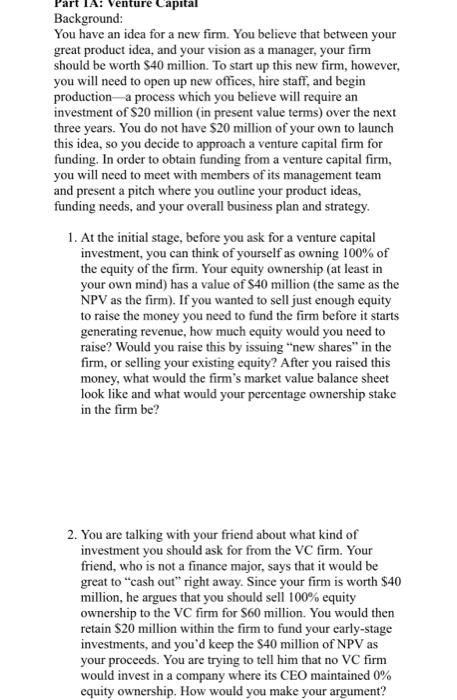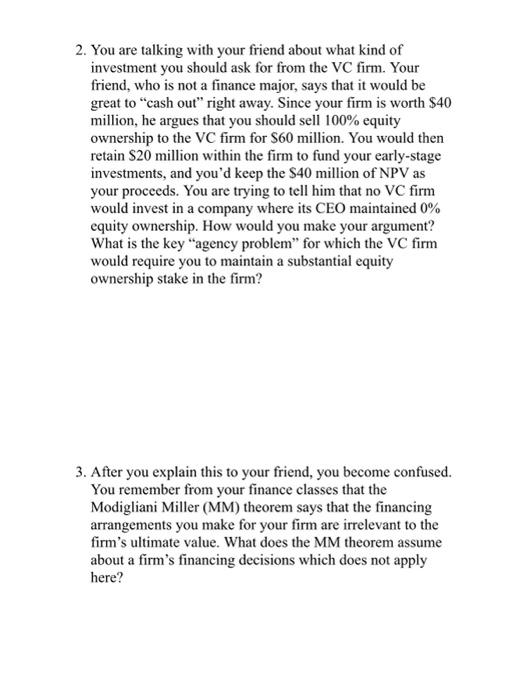Background: You have an idea for a new firm. You believe that between your great product idea, and your vision as a manager, your firm should be worth $40 million. To start up this new firm, however, you will need to open up new offices, hire staff, and begin production-a process which you believe will require an investment of $20 million (in present value terms) over the next three years. You do not have $20 million of your own to launch this idea, so you decide to approach a venture capital firm for funding. In order to obtain funding from a venture capital firm, you will need to meet with members of its management team and present a pitch where you outline your product ideas, funding needs, and your overall business plan and strategy. 1. At the initial stage, before you ask for a venture capital investment, you can think of yourself as owning 100% of the equity of the firm. Your equity ownership (at least in your own mind) has a value of $40 million (the same as the NPV as the firm). If you wanted to sell just enough equity to raise the money you need to fund the firm before it starts generating revenue, how much equity would you need to raise? Would you raise this by issuing "new shares" in the firm, or selling your existing equity? After you raised this money, what would the firm's market value balance sheet look like and what would your percentage ownership stake in the firm be? 2. You are talking with your friend about what kind of investment you should ask for from the VC firm. Your friend, who is not a finance major, says that it would be great to "cash out" right away. Since your firm is worth $40 million, he argues that you should sell 100% equity ownership to the VC firm for $60 million. You would then retain $20 million within the firm to fund your early-stage investments, and you'd keep the $40 million of NPV as your proceeds. You are trying to tell him that no VC firm would invest in a company where its CEO maintained 0% equity ownership. How would you make your argument? 2. You are talking with your friend about what kind of investment you should ask for from the VC firm. Your friend, who is not a finance major, says that it would be great to "cash out" right away. Since your firm is worth $40 million, he argues that you should sell 100% equity ownership to the VC firm for $60 million. You would then retain $20 million within the firm to fund your early-stage investments, and you'd keep the $40 million of NPV as your proceeds. You are trying to tell him that no VC firm would invest in a company where its CEO maintained 0% equity ownership. How would you make your argument? What is the key "agency problem" for which the VC firm would require you to maintain a substantial equity ownership stake in the firm? 3. After you explain this to your friend, you become confused. You remember from your finance classes that the Modigliani Miller (MM) theorem says that the financing arrangements you make for your firm are irrelevant to the firm's ultimate value. What does the MM theorem assume about a firm's financing decisions which does not apply here








